 June 2022 in “Journal of Experimental Biology and Agricultural Sciences”
June 2022 in “Journal of Experimental Biology and Agricultural Sciences” Higher testosterone harms sperm motility, while higher estradiol improves sperm survival.
 April 2021 in “Animal Bioscience”
April 2021 in “Animal Bioscience” 5-Aminolevulinic acid can help chicken sperm move better at the right amount.
[object Object]  October 2020 in “Journal of Pakistan Association of Dermatology”
October 2020 in “Journal of Pakistan Association of Dermatology” Finasteride appears safe for long-term sperm concentration, but more research is needed for clear conclusions.
 1 citations,
January 2018 in “PubMed”
1 citations,
January 2018 in “PubMed” Women with PCOS have a similar chance of getting pregnant using assisted reproductive treatment as those without PCOS.
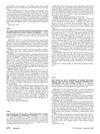 2 citations,
September 2008 in “Fertility and Sterility”
2 citations,
September 2008 in “Fertility and Sterility” Adult offspring of sperm donation generally feel positive about their conception and view the donor as their biological father.
 34 citations,
January 2004 in “Revista do Hospital das Clínicas”
34 citations,
January 2004 in “Revista do Hospital das Clínicas” Finasteride may worsen infertility in men with existing issues, but stopping it can improve sperm health.
 15 citations,
January 2017 in “Advances in Experimental Medicine and Biology”
15 citations,
January 2017 in “Advances in Experimental Medicine and Biology” 5α-Reductase inhibitors can negatively affect male sexual function and, in some cases, significantly reduce sperm count, but these effects may be reversible.
 5 citations,
December 2012 in “PubMed”
5 citations,
December 2012 in “PubMed” Stopping the use of the drug finasteride can improve sperm count and does not prevent normal conception, but caution is advised when trying to conceive.
 2 citations,
January 2011 in “Yearbook of Urology”
2 citations,
January 2011 in “Yearbook of Urology” Stopping finasteride can improve sperm count in infertile men.
 1 citations,
September 2013 in “Fertility and Sterility”
1 citations,
September 2013 in “Fertility and Sterility” Finasteride discontinuation increases sperm count in men.
 1 citations,
September 2013 in “Fertility and Sterility”
1 citations,
September 2013 in “Fertility and Sterility” Finasteride may improve sperm count in subfertile men with low sperm count.
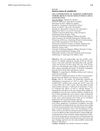 July 2023 in “The journal of sexual medicine”
July 2023 in “The journal of sexual medicine” Anabolic-androgenic steroids harm male hormone levels, sperm, metabolism, and can cause acne, hair loss, and breast growth.
Finasteride impairs sperm quality and fertility in rats, even after stopping treatment.
 June 1998 in “Biomedicine & Pharmacotherapy”
June 1998 in “Biomedicine & Pharmacotherapy” Medical treatments like chemotherapy and radiotherapy can harm sperm production, so freezing sperm before treatment is important for men who want children later.
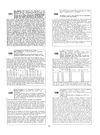 October 1988 in “Pediatric research”
October 1988 in “Pediatric research” Certain maturity signs appear before and after the first release of sperm in boys.
January 2018 in “日本薬理学会年会要旨集 =” Stopping finasteride improves sperm quality but not semen volume in young men.
 August 2015 in “Dermatologica Sinica”
August 2015 in “Dermatologica Sinica” Men with severe hair loss may have poorer sperm quality.
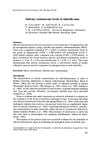 5 citations,
August 1987 in “Andrology”
5 citations,
August 1987 in “Andrology” Men with low or no sperm count have lower salivary testosterone levels, and saliva testing can measure their testosterone well.
 5 citations,
June 2008 in “Acta Cirurgica Brasileira”
5 citations,
June 2008 in “Acta Cirurgica Brasileira” Finasteride causes sperm production decrease in Mesocricetus auratus.
4 citations,
January 2023 in “Andrology” The testes produce sperm and hormones essential for male development.
 2 citations,
January 2014 in “Elsevier eBooks”
2 citations,
January 2014 in “Elsevier eBooks” The document explains how sperm cells are produced, the role of testosterone in this process, and how toxins can reduce sperm count and fertility.
 195 citations,
February 2007 in “The Journal of Clinical Endocrinology and Metabolism”
195 citations,
February 2007 in “The Journal of Clinical Endocrinology and Metabolism” Dutasteride and finasteride may reduce sperm count and volume but don't affect movement or shape; effects are reversible after stopping.
[object Object]  104 citations,
October 1999 in “The Journal of Urology”
104 citations,
October 1999 in “The Journal of Urology” Finasteride doesn't harm male fertility or sperm quality, but may slightly reduce ejaculate volume.
 11 citations,
March 2010 in “International Journal of Andrology”
11 citations,
March 2010 in “International Journal of Andrology” Finasteride 1-mg doesn't harm sperm or pregnancy chances.
 2 citations,
October 2000 in “The Journal of Urology”
2 citations,
October 2000 in “The Journal of Urology” Finasteride daily doesn't affect sperm production or semen in young men.
 18 citations,
June 2002 in “BJUI”
18 citations,
June 2002 in “BJUI” Finasteride doesn't change rat testicle weight or sperm production.
 17 citations,
January 2013 in “Our Dermatology Online”
17 citations,
January 2013 in “Our Dermatology Online” Dutasteride mesotherapy helps treat male hair loss but may harm sperm and sexual function.
10 citations,
September 2015 in “Folia Histochemica Et Cytobiologica” Finasteride treatment in male rats can reduce fertility and affect sperm development in their offspring.
 1 citations,
May 2023 in “Fertility and sterility”
1 citations,
May 2023 in “Fertility and sterility” Men who went through puberty later had lower sperm counts and altered hormone levels, possibly affecting fertility.
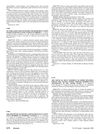 September 2008 in “Fertility and Sterility”
September 2008 in “Fertility and Sterility” Men and women in infertile couples feel using donor sperm may cause more stress and marital issues than using donor eggs.


























